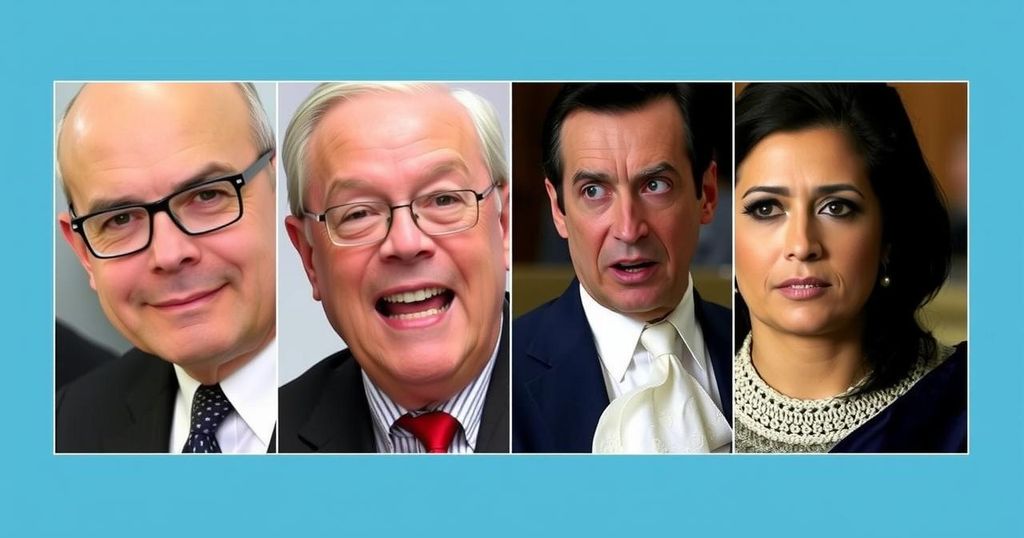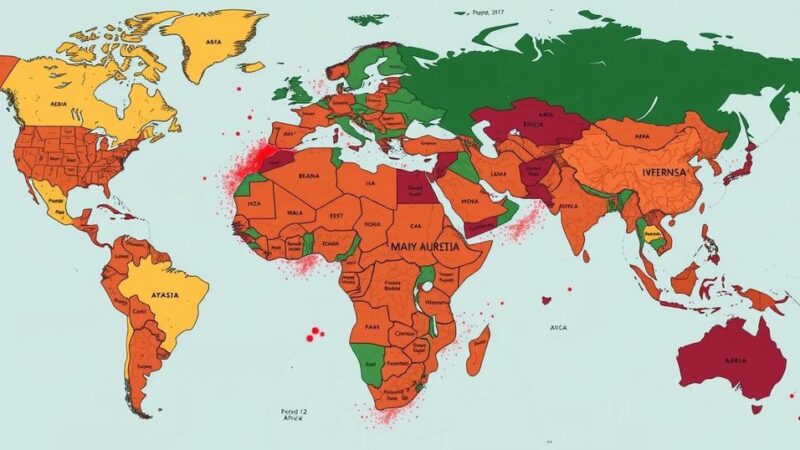Bolivia is set to hold judicial elections on Sunday, amidst controversy regarding the election process and ongoing political conflicts. With a unique system that allows public voting for judges, current voter apathy reflects widespread concern over judicial independence. Accusations of political manipulation regarding the Constitutional Court and election delays have surfaced, casting doubt on the legitimacy of the electoral process and its implications for Bolivian democracy.
In Bolivia, the upcoming judicial elections on Sunday are surrounded by controversy amidst strict campaigning regulations that some candidates have chosen to circumvent through unconventional means, such as branding their images on food products. As the only country that elects its top judges, Bolivia’s system has faced criticism for transforming the judiciary into a political battleground rather than an impartial entity. Former President Evo Morales’ previous reforms in 2009 have been criticized for aggravating this issue, as current voters express disillusionment with a system perceived as favoring political allegiance over judicial qualification.
With only partial elections taking place, as four out of nine seats in the Constitutional Court are available, the legitimacy of the electoral process remains in question. The delay of elections until now was perceived as a power struggle between President Luis Arce and Morales, where accusations of illegal extensions for friendly judges emerged. Such politicization has raised concerns among international observers, including the Inter-American Court of Human Rights, challenging the sustainability and effectiveness of judicial processes in Bolivia.
Historically, past elections saw low voter turnout, highlighting widespread skepticism towards judicial elections pre-selected by political leaders. This phenomenon reflects broader regional patterns in Latin America, where electoral interference often threatens the foundations of democracy. As the implications of this electoral process unfold, neighboring nations like Mexico will closely monitor the developments, given their own similar judicial reforms under President Andres Manuel Lopez Obrador.
Bolivia’s system of electing judges is a unique approach, being the sole nation to grant the populace direct influence over its top judicial positions. This practice stems from reforms introduced by former President Evo Morales to enhance democracy and eliminate corruption in the judiciary. However, the effectiveness of this system has been widely criticized, as many believe it undermines the independence of the judiciary by politicizing judicial appointments. The current electoral situation is complicated further by internal party conflicts and allegations of power manipulation, casting doubt on the legitimacy of the upcoming elections and the overall health of the Bolivian democratic system.
The judicial elections in Bolivia, scheduled for Sunday, are poised to be a significant test of the country’s legal and political integrity. Amid accusations of corruption, political maneuvering, and diminishing public trust in the judicial system, the elections raise critical questions regarding the future of democratic governance in Bolivia. Given the lessons learned from past elections, observers are keen to see whether this process can enhance transparency and restore faith in a system marred by partisan influence and perceived irregularities.
Original Source: www.voanews.com






